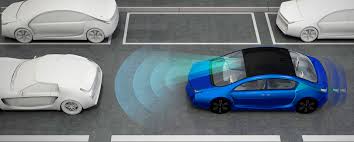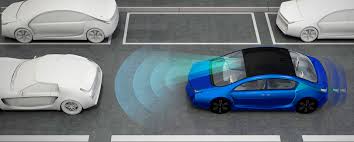
A taste of the feeling of sitting in driverless vehicles was available to the visitors to the Winter Olympic Games in Pyeongchang in February as South Korean auto manufacturer Hyundai released a fleet of such busses especially for the games.
For those who have not been that fortunate, a future with driverless vehicles is not far away.
This was confirmed by luxury car maker Daimler last week when the company announced a partnership with Nvidia, a firm dealing with artificial intelligence (AI), where the tow companies would jointly develop systems that would be used for fully automated and driverless urban vehicles. It could be less than a year that testing of a driverless car manufactured by the collaboration of Daimler, auto-parts maker Bosch and Nvidia would be made in California, United States.
While the idea of a driverless car can appear to be quite a simple one – like in the words of Daimler – a set of complex computer systems sitting on wheels and working together, the actual concept and its on its execution is far more complex.
Because automated cars in real life would require analysis of various inputs from a range of surround sensors, therefore such computer systems would require high computing powers to be able to automatically navigate heavy traffic. And according to Daimler, that could be offered by Nvidia with its Drive Pegasus platform which is powered “by high performance AI automotive processors along with system software that will process the vehicle-driving algorithms generated by Bosch and Daimler using machine-learning methods”.
Greater access to mobility, improved traffic flow and better safety situations would be offered by these AI-infused vehicles.
This is translated to what this would mean for drivers by Nvidia as “press a button on your smartphone and go”. The company says that the driverless is “a vehicle rich with sensors, powered by an extremely energy efficient supercomputer, and running AI software that acts as a virtual driver”.
There are enormous benefits of the use of autonomous vehicles for mobility services. According to Nvidia: “These AI-infused vehicles will improve traffic flow, enhance safety and offer greater access to mobility. In addition, analysts predict it will cost a mere 17 cents a mile to ride in a driverless car you can summon anytime. And commuters will be able to spend their drive to work actually working, recapturing an estimated US$99 billion worth of lost productivity each year.”
A latest electric concept car called car BYTON K-Byte, a sporty sedan was showcased recently by a start-up BYTON which is a Nanjing company founded by two German entrepreneurs. The company claimed that the car is “made for the age of autonomous driving” where a balance between aesthetics and practicality is achieved with the help of integrated and retractable sensors.
The new concept model is representative of the breakthrough in the design of smart connected vehicles, says Dr Carsten Breitfeld, CEO and co-founder at BYTON. “It changes the design language of traditional cars, delivering a perfect blend of elegance, style, luxury, and sportiness, and introducing new design aesthetics in the age of shared mobility and autonomous driving,” he said.
(Source:www.scmp.com)
For those who have not been that fortunate, a future with driverless vehicles is not far away.
This was confirmed by luxury car maker Daimler last week when the company announced a partnership with Nvidia, a firm dealing with artificial intelligence (AI), where the tow companies would jointly develop systems that would be used for fully automated and driverless urban vehicles. It could be less than a year that testing of a driverless car manufactured by the collaboration of Daimler, auto-parts maker Bosch and Nvidia would be made in California, United States.
While the idea of a driverless car can appear to be quite a simple one – like in the words of Daimler – a set of complex computer systems sitting on wheels and working together, the actual concept and its on its execution is far more complex.
Because automated cars in real life would require analysis of various inputs from a range of surround sensors, therefore such computer systems would require high computing powers to be able to automatically navigate heavy traffic. And according to Daimler, that could be offered by Nvidia with its Drive Pegasus platform which is powered “by high performance AI automotive processors along with system software that will process the vehicle-driving algorithms generated by Bosch and Daimler using machine-learning methods”.
Greater access to mobility, improved traffic flow and better safety situations would be offered by these AI-infused vehicles.
This is translated to what this would mean for drivers by Nvidia as “press a button on your smartphone and go”. The company says that the driverless is “a vehicle rich with sensors, powered by an extremely energy efficient supercomputer, and running AI software that acts as a virtual driver”.
There are enormous benefits of the use of autonomous vehicles for mobility services. According to Nvidia: “These AI-infused vehicles will improve traffic flow, enhance safety and offer greater access to mobility. In addition, analysts predict it will cost a mere 17 cents a mile to ride in a driverless car you can summon anytime. And commuters will be able to spend their drive to work actually working, recapturing an estimated US$99 billion worth of lost productivity each year.”
A latest electric concept car called car BYTON K-Byte, a sporty sedan was showcased recently by a start-up BYTON which is a Nanjing company founded by two German entrepreneurs. The company claimed that the car is “made for the age of autonomous driving” where a balance between aesthetics and practicality is achieved with the help of integrated and retractable sensors.
The new concept model is representative of the breakthrough in the design of smart connected vehicles, says Dr Carsten Breitfeld, CEO and co-founder at BYTON. “It changes the design language of traditional cars, delivering a perfect blend of elegance, style, luxury, and sportiness, and introducing new design aesthetics in the age of shared mobility and autonomous driving,” he said.
(Source:www.scmp.com)














